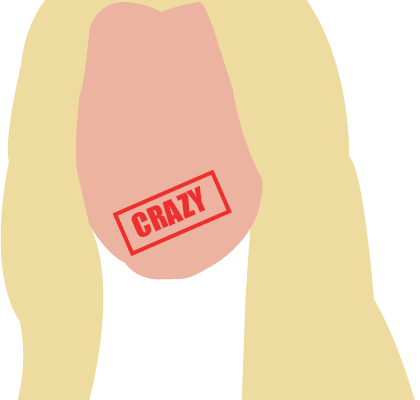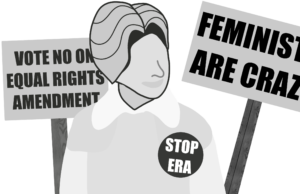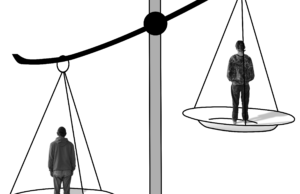Stop shaming women in the media

On Feb. 12, 2007, the front cover of “Newsweek” featured the faces of Britney Spears and Paris Hilton with a striking headline: “The Girls Gone Wild Effect: Out-of-control celebs and online sleaze fuel a new debate over kids and values.” The story includes testimonies from several concerned parents about the possible effects that the “lifestyle choices” of these young women will have on their children. Yet, interestingly enough, the influence of male celebrities is not mentioned once in the entire piece.
Young women in the media are held to significantly higher standards of behavior, expected to maintain an image that is appealing to all in a way that their male counterparts will never face. While Miley Cyrus was harassed relentlessly and deemed a bad influence for her “Wrecking Ball” music video, Justin Bieber was arrested on account of multiple charges, including a DUI, during the peak of his career and it barely made a dent.
The discrepancy in the tolerance for “mistakes” between men and women with media attention is irrefutable and completely overlooks the nuance to these situations. Many of these female celebrities rose to stardom as teenagers, living out their coming-of-age with millions of eyes watching. Everyone makes poor decisions during this time of their life, but most teenagers are not given the unfair expectation to maintain a perfect image as all of their actions are analyzed and judged by strangers.
This is not to say that many celebrities lead unhealthy lifestyles that should not be admired. But, it raises an important question: why are the self-destructive plights of celebrities in the media being sensationalized in the first place? While Lindsay Lohan battled alcohol and drug addiction leading to multiple stints in rehab, the coverage was not about her mental health, and most definitely did not promote recovery or ways to seek help. Instead, the cover of the New York Post featured an image of Lohan passed out in the passenger seat of a car, plastered with the headline “Smashed: Lights out for Lohan 48 hours after DUI bust.” It is clear that addiction is painted in a manner meant to entertain, especially when these young women can be vilified for breaking the “role model” expectations they are expected to uphold.
It would be nice to be able to dismiss instances like these as a flaw within the media and the way the plights of celebrities are portrayed. But in reality, the “lifestyle choices” these young women have made are not the reason why they face much harsher criticism than their male counterparts; it is simply an excuse to belittle and dismiss women who challenge expectations and break the image people want them to have. It doesn’t matter what clothes they wear or what decisions they make- women are constantly vilified for speaking out on issues outside of their career, dismissed as “just an actress” or “just a singer.” While it may be disguised through different phrasing, many are wishing these young women would learn to just “sit still and look pretty.”
Ultimately, if parents are concerned about the content their children are consuming, it is their responsibility to monitor it. Young women celebrities living their lives should not be expected to filter what they say and do because of their primary demographic. Recognize the inherent flaws within the media’s sensationalization of unhealthy behaviors as a whole, but take notice of the distinctively different criticism women face.
Best said in the words of Spears herself, “These parents, they think I’m a role model for their kids, that their kids look at me as some sort of idol. But it’s the parents who should be teaching their kids how to behave. That’s not my responsibility. I’m not responsible for your kid.”



